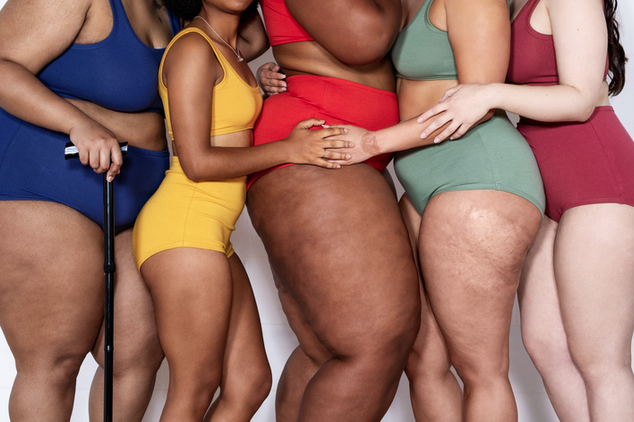
I'm attracted to full-figured women with meat on their bones, especially in all the best-placed all-around areas, but Fatphobia ain't it.
I have a few neighbors who like to judge others and look like they eat bowling balls during their meals. Fatphobia and racism are tightly intertwined. In a guest column for Allure, content creator and educator Gloria Lucas examines the underlying social constructs—purity culture, for instance—that so often have a deeply detrimental impact on larger-bodied Black people with hyperpigmentation, a very common skin condition
The industries that long felt like the exclusionary gatekeepers of the “ideal body” now seemed to welcome all bodies, reflecting their diverse consumer bases.
Then, came the backlash—or, perhaps more accurately, a quiet retreat back into the beauty standards of the ‘90s and ‘00s. As low-rise jeans and Y2K fashion made their comebacks, so returned the ultra-thin ideal. As journalist Gianluca Russo noted in September 2022 for The Zoe Report, plus-size representation in New York Fashion Week has seen a razor-sharp decline.
And, despite the Fenty effect leading to an industry-wide expectation of base makeup to have 40- and 50-shade ranges, fat models continue to experience discrimination on sets, with many still bringing their foundations and concealers just in case the makeup artist’s case doesn’t carry the right colors for their skin tones. In 2023, another major shift arrived: The releases of Ozempic and similar treatments marked revolutionary developments and supported the long-held stance of many medical professionals and advocates that obesity is a matter of biology, not willpower—sparked frenzied responses, from debate and confusion to corporate pivoting.
These conversations contribute to a larger dialogue that many activists, academics, writers, and regular folks have carried on, despite it seeing fewer headlines nowadays. We’ve brought together several stories by writers exploring the complexities of these issues, and shed light on their less-discussed elements. Now, the only question: How will you participate in the body-inclusivity conversation?
GETTY Image